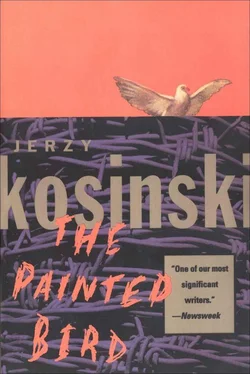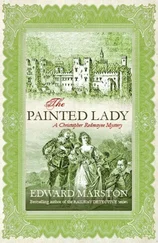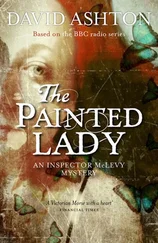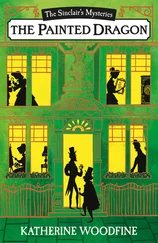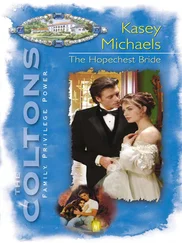Jerzy Kosiński - The Painted Bird
Здесь есть возможность читать онлайн «Jerzy Kosiński - The Painted Bird» весь текст электронной книги совершенно бесплатно (целиком полную версию без сокращений). В некоторых случаях можно слушать аудио, скачать через торрент в формате fb2 и присутствует краткое содержание. Год выпуска: 1965, ISBN: 1965, Жанр: Детская проза, на английском языке. Описание произведения, (предисловие) а так же отзывы посетителей доступны на портале библиотеки ЛибКат.
- Название:The Painted Bird
- Автор:
- Жанр:
- Год:1965
- ISBN:978-0-8021-9575-3
- Рейтинг книги:4 / 5. Голосов: 1
-
Избранное:Добавить в избранное
- Отзывы:
-
Ваша оценка:
- 80
- 1
- 2
- 3
- 4
- 5
The Painted Bird: краткое содержание, описание и аннотация
Предлагаем к чтению аннотацию, описание, краткое содержание или предисловие (зависит от того, что написал сам автор книги «The Painted Bird»). Если вы не нашли необходимую информацию о книге — напишите в комментариях, мы постараемся отыскать её.
The Painted Bird — читать онлайн бесплатно полную книгу (весь текст) целиком
Ниже представлен текст книги, разбитый по страницам. Система сохранения места последней прочитанной страницы, позволяет с удобством читать онлайн бесплатно книгу «The Painted Bird», без необходимости каждый раз заново искать на чём Вы остановились. Поставьте закладку, и сможете в любой момент перейти на страницу, на которой закончили чтение.
Интервал:
Закладка:
As the dust settled, the split house timidly bared its entrails. Limp human bodies lay tossed over the jagged edges of the broken floors and ceilings like rags covering the break. They were just beginning to soak in the red dye. Tiny particles of torn paper, plaster, and paint clung to the sticky red rags like hungry flies. Everything around was still in motion; only the bodies seemed at peace.
Then came the groans and screams of people pinned down by the falling beams, impaled on rods and pipes, partially torn and crushed under chunks of walls. Only one old woman came up from the dark pit. She clutched desperately at bricks and when her toothless mouth opened to speak she was suddenly unable to utter a sound. She was half naked and withered breasts hung from her bony chest. When she reached the end of the crater at the pile of rubble between the pit and the road, she stood up straight for a moment on the ridge. Then she toppled over backwards and disappeared behind the debris.
One could die less spectacularly at the hands of another man. Not long ago, when I lived at Lekh’s, two peasants began to fight at a reception. In the middle of the hut they rushed at each other, clutched at each other’s throat, and fell on the dirt floor. They bit with their teeth like enraged dogs, tearing off pieces of clothing and flesh. Their horny hands and knees and shoulders and feet seemed to have a life of their own. They jumped about clutching, striking, scratching, twisting in a wild dance. Bare knuckles hit skulls like hammers and bones cracked under stress.
Then the guests, watching calmly in a circle, heard a crushing noise and a hoarse rattle. One of the men stayed on top longer. The other gasped and seemed to be weakening, but still lifted his head and spat in the victor’s face. The man on top did not forgive this. He triumphantly blew himself up like a bullfrog and took a wide swing, smashing the other’s head in with terrible force. The head did not struggle to rise any more, but seemed to dissolve into a growing pool of blood. The man was dead.
I felt now like the mangy dog that the partisans had killed. They had first stroked his head and scratched him behind the ears. The dog, overwhelmed with joy, yapped with love and gratitude. Then they tossed him a bone. He ran after it, wagging his scruffy tail, scaring the butterflies and trampling flowers. When he seized the bone and proudly lifted it, they shot him.
The soldier hitched up his belt. His movement caught my attention and I stopped thinking for a moment.
Then I tried to calculate the distance to the forest and the time it would take him to pick up his rifle and shoot if I should suddenly escape. The forest was too far; I would die midway on the sandy ridge. At best I might reach the patch of weeds, in which I would still be visible and unable to run fast.
The soldier rose and stretched with a groan. Silence surrounded us. The soft wind blew away the smell of the gasoline and brought back a fragrance of marjoram and fir resin.
He could, of course, shoot me from the back, I thought. People preferred killing a person without looking into his eyes.
The soldier turned toward me and pointing to the forest made a gesture with his hand which seemed to say, “run away, be off!” So the end was coming. I pretended I did not understand and edged toward him. He moved back violently, as if fearing that I might touch him, and angrily pointed to the forest, shielding his eyes with his other hand.
I thought that this was a clever way of tricking me; he was pretending not to look. I stood rooted to the spot. He glanced at me impatiently and said something in his rough tongue. I smiled fawningly at him, but this only exasperated him more. Again he thrust his arm toward the forest. Again I did not move. Then he lay down between the rails, across his rifle, from which he had removed the bolt.
I calculated the distance once more; it seemed to me that this time the risk was small. As I began to move away, the soldier smiled affably. When I reached the edge of the embankment, I glanced back; he was still lying motionless, dozing in the warm sun.
I hastily waved and then leapt like a hare down the embankment straight into the undergrowth of the cool, shady forest. I tore my skin against the ferns as I fled farther and farther until I finally lost my breath and fell down in the moist, soothing moss.
While I lay listening to the sounds of the forest, I heard two shots from the direction of the railroad track. Apparently the soldier was simulating my execution.
Birds awakened and began rustling in the foliage. Right next to me a small lizard leapt out of a root and stared attentively at me. I could have squashed it with a whack of my hand, but I was too tired.
8
After an early autumn destroyed some of the crops, a severe winter set in. First it snowed for many days. The people knew their weather and hastily stored food for themselves and their livestock, plugged any holes in their houses or barns with straw, and secured the chimneys and thatched roofs against the harsh winds. Then the frost came, freezing everything solid under the snow.
No one wanted to keep me. Food was scarce and every mouth was a burden to feed. Besides, there was no work for me to do. One could not even clear manure out of barns which were banked up to the eaves by snow. People shared their shelter with hens, calves, rabbits, pigs, goats, and horses, men and animals warming each other with the heat of their bodies. But there was no room for me.
Winter did not loosen its grip. The heavy sky, filled with leaden clouds, seemed to weigh down on the thatched roofs. Sometimes a cloud darker than the others raced over like a balloon, trailing behind it a mournful shadow that stalked it as evil spirits stalk a sinner. People breathed peepholes onto the ice-frosted windows. When they saw the sinister shadow sweep over the village, they made the sign of the cross and mumbled prayers. It was obvious that the Devil was riding over the countryside on the dark cloud, and as long as he was there one could expect only the worst.
Wrapped in old rags, scraps of rabbit fur and horsehides, I wandered from one village to another, warmed only by the heat of the comet that I made from a can I found on the railway track. I carried on my back a sack full of fuel, which I anxiously replenished at every opportunity. As soon as my sack grew lighter, I would go to the forest, break off branches, tear off some bark, and dig up peat and moss. When the sack was full I continued on my way with a feeling of contentment and security, twirling my comet and delighting in its warmth.
Food was not difficult to find. The endless snowing kept people in their huts. I could safely dig my way into the snowbound barns to find the best potatoes and beetroots, which I later baked in my comet. Even when someone spied me, a shapeless bundle of rags moving sluggishly through the snow, they mistook me for a wraith and only sent the dogs after me. The dogs were reluctant to leave their lairs in the warm huts and waded slowly through the deep snow. When they finally reached me I could easily scare them away with my hot comet. Cold and tired, they returned to the huts.
I wore big wooden shoes bound with long strips of cloth. The width of the footwear, coupled with my light weight, enabled me to move over snow quite well without sinking to my waist. Wrapped up to the eyes, I roamed the countryside freely, meeting no one but ravens.
I slept in the forest, burrowing into a hollow beneath tree roots, with a snowdrift for a roof. I loaded the comet with damp peat and rotten leaves that warmed my dugout with fragrant smoke. The fire lasted through the night.
Finally, after a few weeks of milder winds the snow began to thaw and the peasants began to go outside. I had no choice. Well-rested dogs now roamed about the farmhouses, and I could steal food no more and had to be on my guard every minute. I had to look for some remote village, safely distant from the German outposts.
Читать дальшеИнтервал:
Закладка:
Похожие книги на «The Painted Bird»
Представляем Вашему вниманию похожие книги на «The Painted Bird» списком для выбора. Мы отобрали схожую по названию и смыслу литературу в надежде предоставить читателям больше вариантов отыскать новые, интересные, ещё непрочитанные произведения.
Обсуждение, отзывы о книге «The Painted Bird» и просто собственные мнения читателей. Оставьте ваши комментарии, напишите, что Вы думаете о произведении, его смысле или главных героях. Укажите что конкретно понравилось, а что нет, и почему Вы так считаете.
